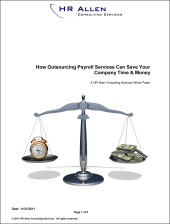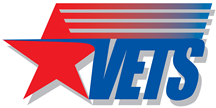UPDATE: On January 3, 2012, the Labor Commissioner changed the FAQs on this notice requirement to clarify that the notice does not need to be given to current employees except under certain circumstances. The Labor Commissioner did so by simply deleting the following sentence formerly in the answer to FAQ 2: “The notice should be given to all current employees and then to all new employees at the time of hire.”
Michael Allen
Recent Posts
Tags: California Labor Code, California Employment laws 2012, New CA Employment Laws 2012, New California Employment Laws 2012, wage and hour, 2012 California Laws
As of January 1, 2012, employers must provide nonexempt employees with specific wage information at the time of hire. The Wage Theft Protection Act of 2011 amends the Labor Code to add section 2810.5, which requires employers to provide a written notice to nonexempt employees at the time of hire.
Tags: New CA Employment Laws 2012, New California Employment Laws 2012, 2012 California Laws, New Wage Notice Form, New Wage Notice, California Wage Notice, Independent Contractor form, Independent Contractor Update
When exploring HR-outsourcing solutions, many companies encounter two unclear and unexplained acronyms: HROs (Human Resources Outsourcers) and PEOs (Professional Employer Organizations). Since these three-letter terms often appear hand-in-hand, it’s easy to assume that they refer to the same thing. But that’s not necessarily the case.
Tags: Human Resource Outsourcing, peo, hro, hro vs peo, peo vs hro, professional employer organization
It is no mystery that, as a business continues to grow, the need for outside services becomes more and more of a reality. This is where many of the advantages of payroll outsourcing comes into play. While many businesses make attempts at conducting payroll services in-house, they are quickly learning why this could be better handled through outsourcing services. How? Once companies remove in-house services, they undoubtedly save time and money. You can save a significant amount of money through using outsourcing services, thus increasing profit.
Barbara Wein Allen implicitly trusted her employees — until she found out that one of them had stolen some $250,000 from her firm, Multi-Point Communications of Birmingham, Ala.
Everyone appreciates a cheerful co-worker, but employees often experience negative feelings
on the job, too. Episodes of depression, anxiety, or anger can affect your company’s bottom line: The World Health Organization estimates that 35 to 45 percent of workplace absenteeism can be attributed to mental distress. Meanwhile, researchers at Tel Aviv Universityfound that those who described a workplace as “emotionally non-supportive” were 2.4 times more likely to die over the study’s 20-year period, The New York Times reports. Questions posed by researchers included whether or not subjects viewed supervisors and peers as approachable and friendly.
Tags: emotions, employees emotions, employees, employee
The U.S. Department of Labor (DOL) announced that it has delayed the filing deadline for Vets-100/Vets-100A reporting forms for the 2011 cycle to January 15, 2012. The filing deadline was set for today.
“All paper reports and electronic files received at the Service Desk by January 15th will be included as part of the 2011 filing cycle and will not be considered late,” the DOL announced in a statement.
Federal contractors use the VETS-100/VETS-100A reporting forms to detail the number of protected veteran employees and new hires in their workforce. Regulations require contractors to submit this form by September 30 of each year. Technical issues have delayed the reporting requirement this year.
Please visit the VETS website for more information on VETS-100/VETS-100A rules and regulations, including a federal contractor fact sheet.
Tags: VETS-100, VETS-100A, Department of Labor, DOL
Dear Employers,
Tags: CALIFORNIA LABOR COMPLIANCE BUREAU, SCAMMED FOR $275.00, FALSE ADVERTISING, FAKE LABOR LAW POSTER
So you decided to hire an independent contractor instead of a new employee to handle certain tasks, and now you’re experiencing a bit of sticker shock. Why should you pay $80 an hour for a freelance PR consultant when you’d only pay her $35 an hour as a salaried staff member? Is she gouging you? No, she’s not. Independent contractors incur a range of small-business expenses, much like your company, so it’s unfair to compare their rates with the wages of an in-house employee.
Tags: independent contractor, money, salary
The U.S. health care industry is undergoing a transformation. As legislation, incentives, and benefits roll out over the next few years, small businesses should seize the opportunities created by health care reform, including new and more affordable options for insurance coverage.
























